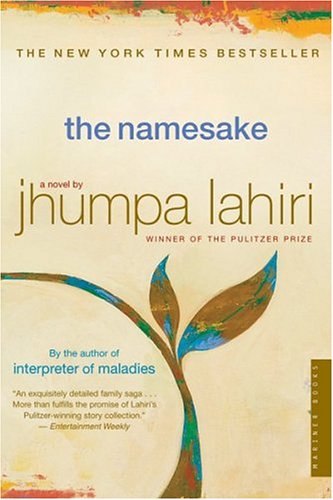All Nonfiction
- Bullying
- Books
- Academic
- Author Interviews
- Celebrity interviews
- College Articles
- College Essays
- Educator of the Year
- Heroes
- Interviews
- Memoir
- Personal Experience
- Sports
- Travel & Culture
All Opinions
- Bullying
- Current Events / Politics
- Discrimination
- Drugs / Alcohol / Smoking
- Entertainment / Celebrities
- Environment
- Love / Relationships
- Movies / Music / TV
- Pop Culture / Trends
- School / College
- Social Issues / Civics
- Spirituality / Religion
- Sports / Hobbies
All Hot Topics
- Bullying
- Community Service
- Environment
- Health
- Letters to the Editor
- Pride & Prejudice
- What Matters
- Back
Summer Guide
- Program Links
- Program Reviews
- Back
College Guide
- College Links
- College Reviews
- College Essays
- College Articles
- Back
The Namesake
As the second book of a Pulitzer Prize winning author, The Namesake deals with the aspect of attempting to find happiness when one is so far away from home. Lahiri shows the difficulty of discovering ones true identity amidst so much strangeness.
Jhumpa Lahiri first writes under the perspective of Ashima, a woman who was forced to migrate from her home in Calcutta, India, to the strange lands of America. Throughout the novel, Ashima and her husband, Ashoke, attempt to raise their children, Gogol and Sonia, under a balance of American and Indian culture. As one can expect, the children desire a more American way of life, eating hot dogs and wanting to wear shoes in the house, while their parents present the various aspects of their cultural background by forcing their children to go to Indian parties and religious gatherings.
As the story progresses, Lahiri slowly begins to narrate through Gogol's views. I'm sure you've never heard of the name Gogol before right? Well Gogol himself feels the same way. As he grows up, he begins to despise his name as other kids comment on its strangeness and the fact that 'it isn't even an Indian name.' Surprisingly enough, his parents had actually given him two names when he grew up: a nickname, Gogol, and a 'good name', Nikolai. They had done this because that was how they named children in India, and they wanted to keep to their cultural background as much as possible. However, when Gogol went to kindergarten, he had already gotten used to his nickname and could not understand why he had two names. Therefore, his parents decided to drop his 'good name', therefore making yet another sacrifice in order to assimilate to American society. When Gogol turns 18, he still possesses the same intense hatred for his name, and therefore ironically decides to legally change his name to Nikolai. Only later in life, does Gogol learn that his name was his very first and most cherished gift from his father, and the relation that the name has with his father's secret near-death experience.
Although I love this book and give it four and a half stars, I feel that Lahiri had overdone it for the book. This is expected as she was trying to live up to the expectation of her first award winning book. However, I do recommend this book because it is filled with aspects of acceptance, love, family, and the definition of what a home truly is.
Similar Articles
JOIN THE DISCUSSION
This article has 0 comments.

